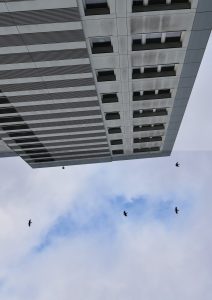
On Tuesday December 14th at 20:00 CET the first in our series of Tesserae Dialogues will go live online.
We are excited to be opening the series with guest Michael Edwards, professor at the Bartlett School of Architecture at UCL and a fellow member of the International Network of Urban Research and Action.
Michael has been a great inspiration for us with his tireless ability to combine academic teaching and political engagement, connecting theory and critique of urban economics with the struggles of grassroots movements. During the conversation we will explore his experience as part of the Just Space network and discuss the importance of connecting urban movements internationally and the complexities of translating urban concepts into different languages and cultures.
Register here on Eventbrite to join the online event.


Prof Michael Edwards studied planning at UCL from 1964. He then worked in Nathaniel Lichfield’s practice, doing most of the economic inputs to the Plan for Milton Keynes and learning the joys and hazards of working in a multi-disciplinary team. He became a lecturer in the Bartlett School at UCL in 1969, where he has enjoyed working ever since. He was active, throughout its life, in the Bartlett International Summer Schools on the Production of the Built Environment (BISS), a marxist forum which met annually from 1979 to 1996, developing a strong dependence on international debates with comrades. He went on to be a founder of the International Network for Urban Research and Action INURA which has been a uniquely fertile ground for intellectual and practical discussions ever since, feeding into all the work in London on resistance to the property market dominance of how the city and its neighbourhoods develop, much of it organised through the Just Space network.
Michael blogs at michaeledwards.org.uk (where his publications can also be downloaded) and is active on Twitter as @michaellondonsf .





